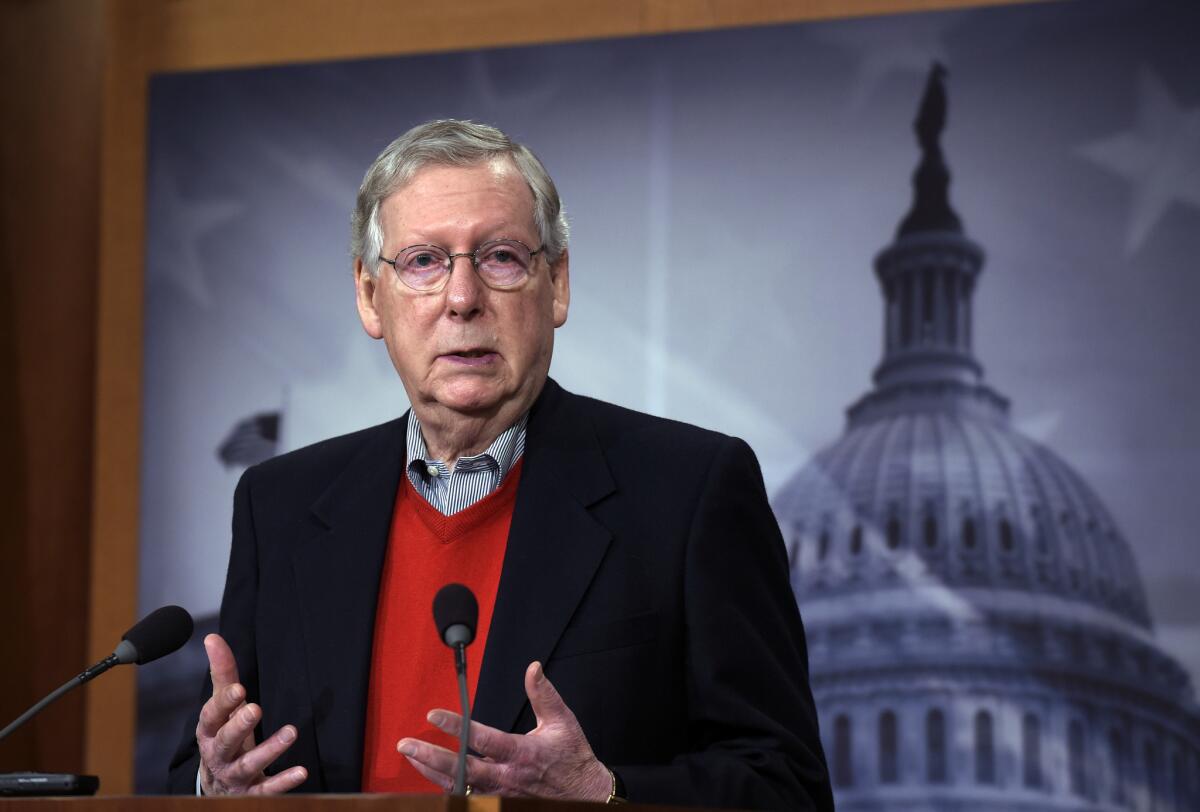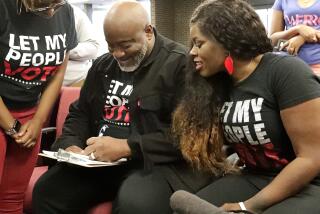Editorial: Honor John Lewis — and serve democracy — by reinvigorating the Voting Rights Act

Republicans in Congress, including Senate Majority Leader Mitch McConnell, effusively eulogized Democratic Rep. John Lewis of Georgia after the civil-rights legend died last week. McConnell (R-Ky.) rightly described Lewis as an “American hero” who “put his life on the line to fight racism, promote equal rights and bring our nation into greater alignment with its founding principles.”
Now Senate Democrats are pressing McConnell to match actions to his words by calling up a long-stalled bill to reestablish protections for voting rights that were eviscerated by a 2013 Supreme Court decision. Referring to McConnell, Sen. Kamala Harris said: “If he wants to make clear his honor for the life, the legacy, the sacrifice, the heroism of John Lewis, put that on the floor for a vote, and let’s name it the John Lewis Voting Rights Act of 2020.”
This isn’t just partisan point-scoring. Securing the right to vote for African Americans and other victims of discrimination was the cause of Lewis’ life, the cause for which he was marching in Selma, Ala., in 1965 when he was brutally attacked by police. But it’s also vital to American democracy.
The landmark Voting Rights Act of 1965 required, among other things, that states with a history of discrimination “pre-clear” changes in election procedures with the U.S. attorney general or a federal court in Washington, D.C. But seven years ago, in Shelby County vs. Holder, the conservative majority of the Supreme Court struck down a formula that determined which jurisdictions were subject to pre-clearance. It was a disastrous ruling that made it easier for states to take steps, such as requiring photo IDs and eliminating polling places, that made it harder to vote.
In his majority opinion, Chief Justice John G. Roberts Jr. noted that “things have changed dramatically” in the South and other jurisdictions covered by pre-clearance. Yet, he said, the Voting Rights Act continued to rely on “decades-old data and eradicated practices” in determining which jurisdictions would be subject to pre-clearance.
The court was wrong and reckless in second-guessing the judgment of Congress, which is entrusted by the Constitution with enforcing the 15th Amendment prohibiting racial discrimination in voting. Still, Roberts made it clear that Congress could restore the pre-clearance mandate by establishing a new formula based on more recent data.
That is what would be accomplished at long last by the Voting Rights Advancement Act, which would require pre-clearance in states with numerous voting rights violations over the last 25 years. (Attempts by any jurisdiction to require more proof of identity from would-be voters than the federal government requires could also face a pre-clearance requirement.) The bill was passed by the House in December, but a similar proposal has languished in the Senate. If McConnell and his Republican colleagues want to honor Lewis, and cement his legacy, they will stop their stalling.
More to Read
A cure for the common opinion
Get thought-provoking perspectives with our weekly newsletter.
You may occasionally receive promotional content from the Los Angeles Times.










